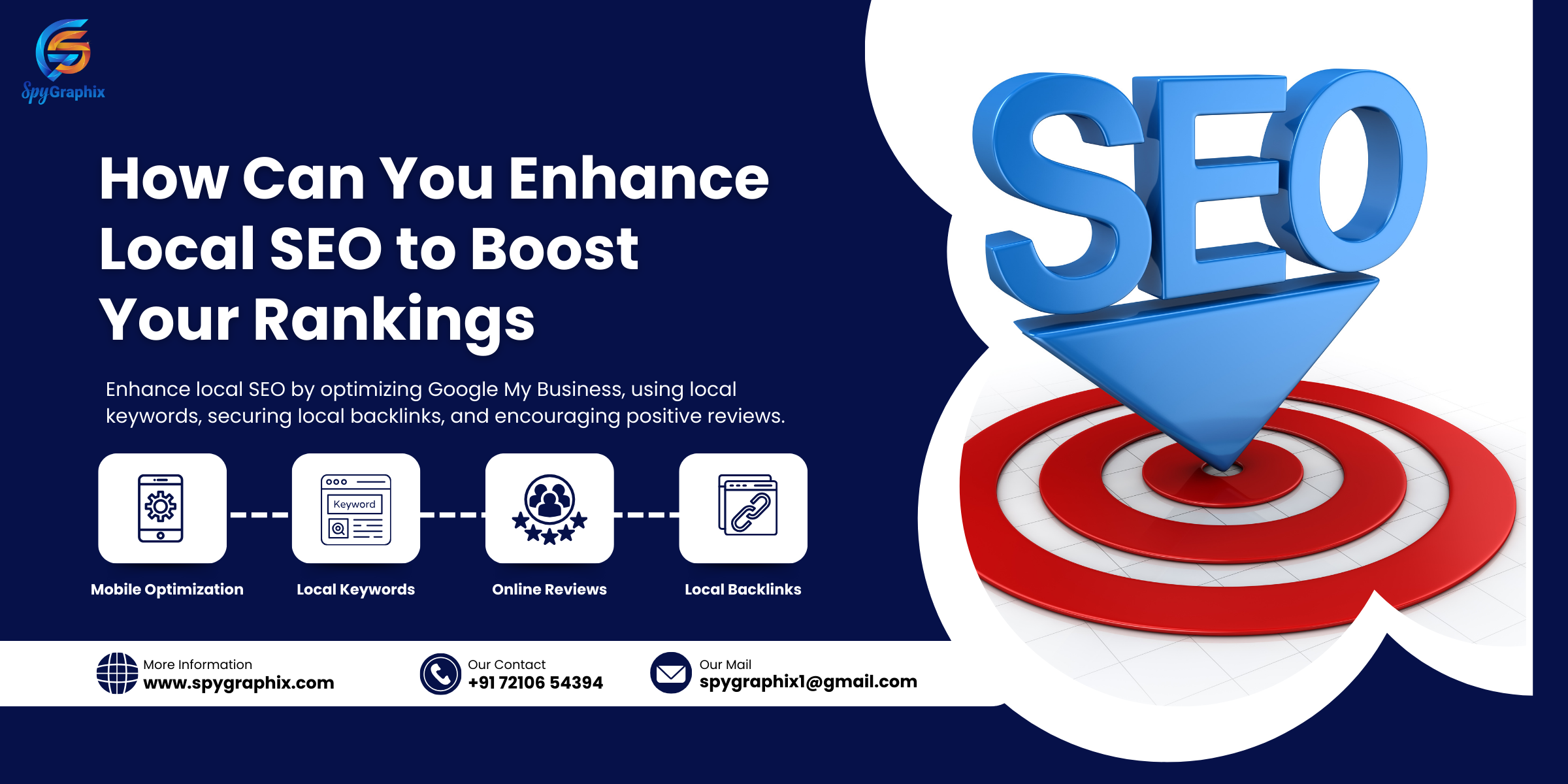Aug 12, 2024

Local SEO has become increasingly vital for businesses that aim to attract nearby customers. Whether you're a small business or a larger enterprise, optimizing your local search presence can significantly impact your rankings and, ultimately, your bottom line. In this article, we’ll explore various strategies and best practices to help you enhance your local SEO and dominate local search results.
What is Local SEO?
Local SEO focuses on optimizing a website to be found in local search results. It’s crucial for businesses that rely on local customers, as it helps connect you with people searching for products or services near them.
Why Local SEO Matters
With the increasing use of mobile devices, local searches have skyrocketed. If your business isn’t optimized for local search, you’re missing out on potential customers right in your neighborhood.
Google My Business Optimization
One of the most crucial elements of local SEO is optimizing your Google My Business (GMB) listing. Ensure your GMB profile is fully filled out, including accurate business information, hours, and photos.
Local Citations and Directory Listings
Consistency is key when it comes to your business information across the web. Ensure your name, address, and phone number (NAP) are consistent across all local citations and directory listings.
On-Page SEO for Local Searches
Your website should include location-specific keywords and optimized meta tags to rank higher in local searches. Incorporate local keywords naturally within your content, headers, and meta descriptions.
Encouraging Customer Reviews
Positive reviews not only enhance your online reputation but also play a crucial role in local search rankings. Encourage satisfied customers to leave reviews on your GMB page and other review platforms.
Leveraging Local Backlinks
Building backlinks from local websites, blogs, and news outlets can significantly boost your local SEO efforts. Engage with local community websites and partners to earn valuable local backlinks.
Creating Localized Content
Developing content that resonates with your local audience is another effective way to improve local SEO. Write blog posts, create videos, or host events that are relevant to your community.
Why Mobile Optimization is Crucial
With a majority of local searches happening on mobile devices, having a mobile-friendly website is essential. Ensure your website is responsive, fast, and easy to navigate on mobile devices.
Best Practices for Mobile SEO
Optimize images for faster load times, simplify navigation, and use large, easy-to-click buttons to improve the mobile user experience. Google favors mobile-friendly websites in search rankings.
Tools to Monitor Local SEO Performance
Use tools like Google Analytics, Google Search Console, and local SEO tools like Moz Local to track your rankings, traffic, and overall local SEO performance.
Key Metrics to Watch
Pay attention to metrics like local search rankings, website traffic from local searches, and customer engagement on your GMB listing to gauge the success of your local SEO efforts.
Ignoring Negative Reviews
Negative reviews can harm your local search rankings and deter potential customers. Always respond to negative reviews professionally and work to resolve the issues.
Inconsistent NAP Information
Inconsistent business information across different platforms can confuse search engines and hurt your local rankings. Regularly audit your online listings to ensure consistency.
Overlooking the Importance of Local Content
Focusing solely on broad, non-local keywords can prevent you from connecting with your local audience. Prioritize local content to better serve your community and improve local search visibility.
Schema Markup for Local SEO
Implementing schema markup on your website can provide search engines with more detailed information about your business, such as your location, services, and operating hours. This can help improve your local search rankings.
Voice Search Optimization
With the rise of voice search, optimizing your content for voice queries can give you a competitive edge in local SEO. Focus on natural language, long-tail keywords, and question-based queries.
Hyperlocal SEO Strategies
For businesses in densely populated areas, hyperlocal SEO can help you target customers in very specific neighborhoods or even streets. Use hyperlocal keywords and optimize your Google My Business listing accordingly.
Improving your local SEO is a continuous process that involves optimizing various aspects of your online presence. From Google My Business to local content and backlinks, every effort contributes to better local search rankings. By implementing these strategies, you can enhance your local SEO, attract more customers, and grow your business.
What is the first step to improve local SEO?
Start by optimizing your Google My Business profile with accurate and up-to-date information.
How important are customer reviews for local SEO?
Very important! Positive reviews can significantly boost your local search rankings and attract more customers.
Can mobile optimization affect local SEO?
Absolutely. A mobile-friendly website is essential for ranking well in local searches, as most local searches happen on mobile devices.
What is hyperlocal SEO?
Hyperlocal SEO targets very specific, small areas, such as neighborhoods or streets, to attract customers from that immediate vicinity.
How do I track the success of my local SEO efforts?
Use tools like Google Analytics and Moz Local to monitor local search rankings, traffic, and engagement metrics.